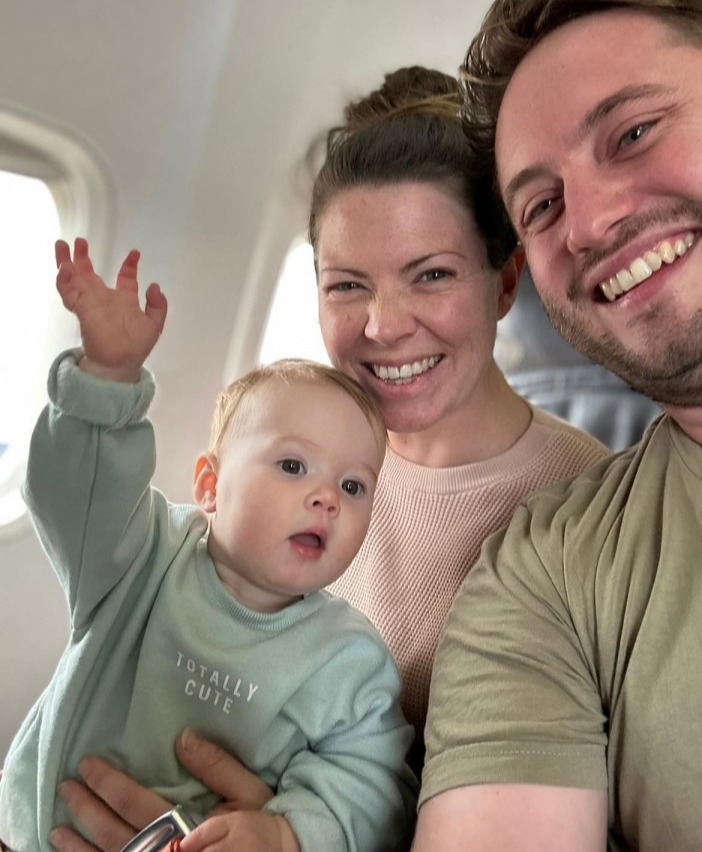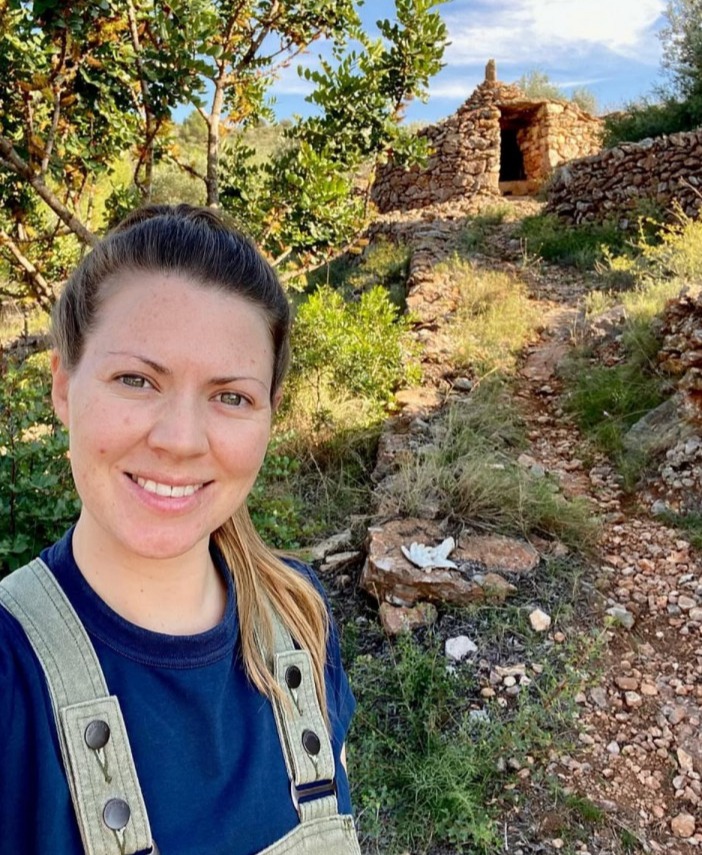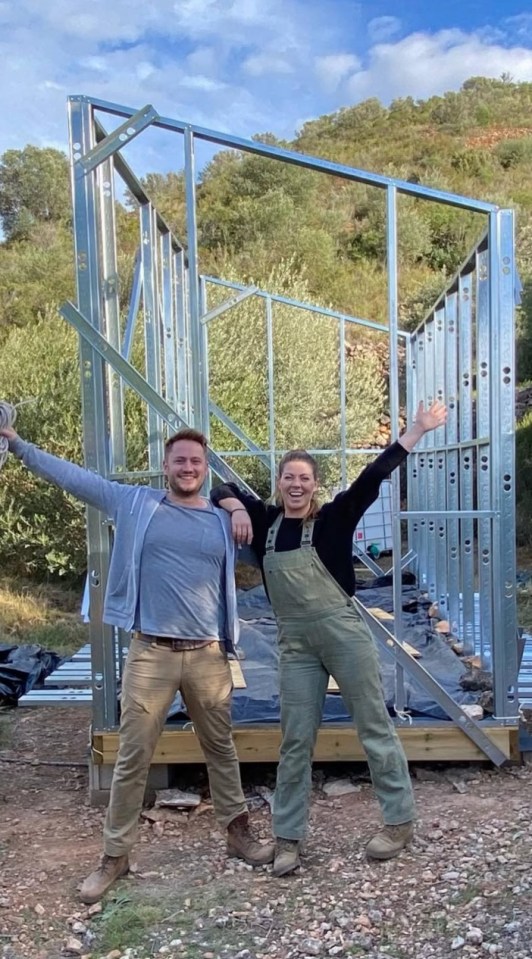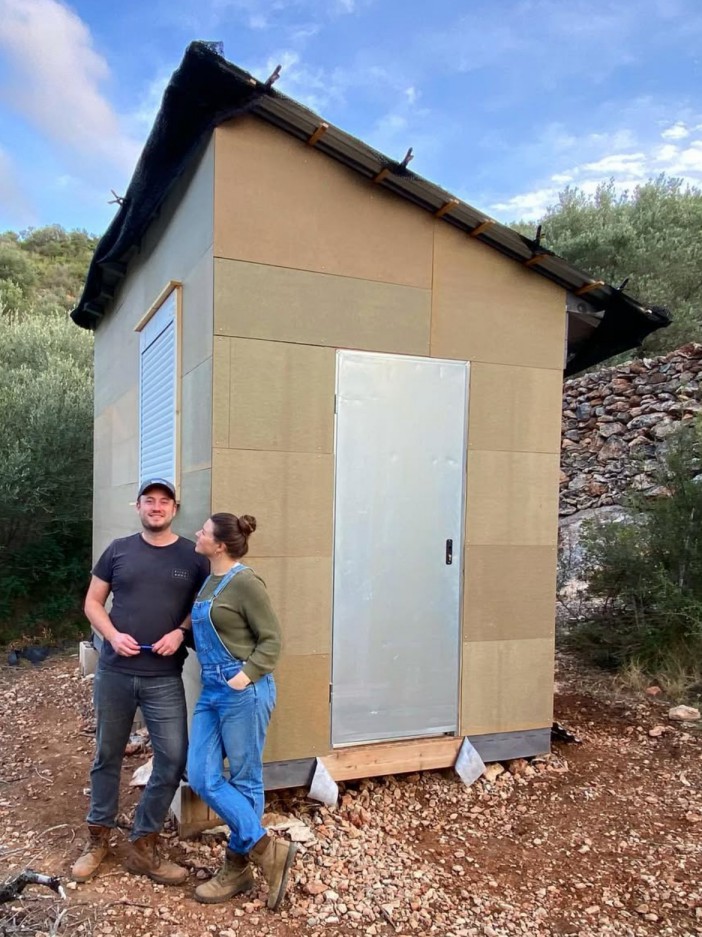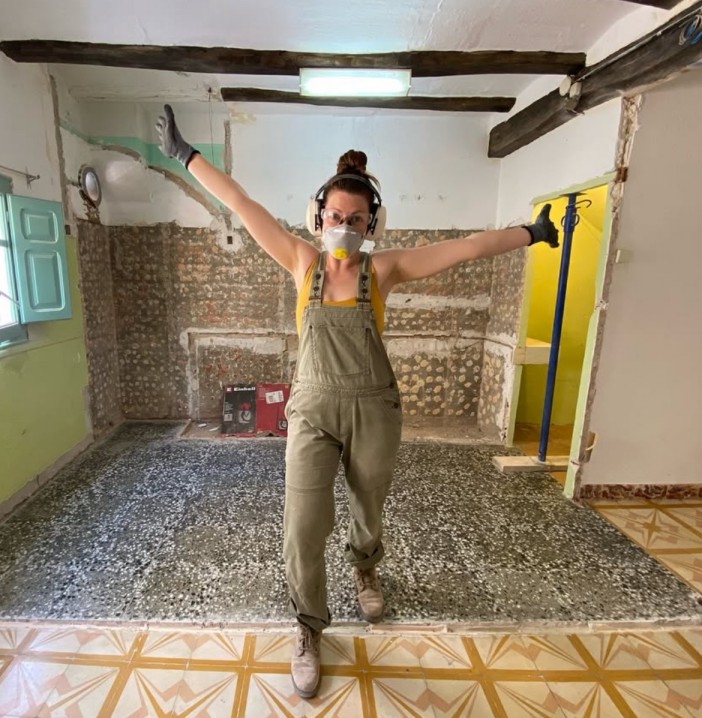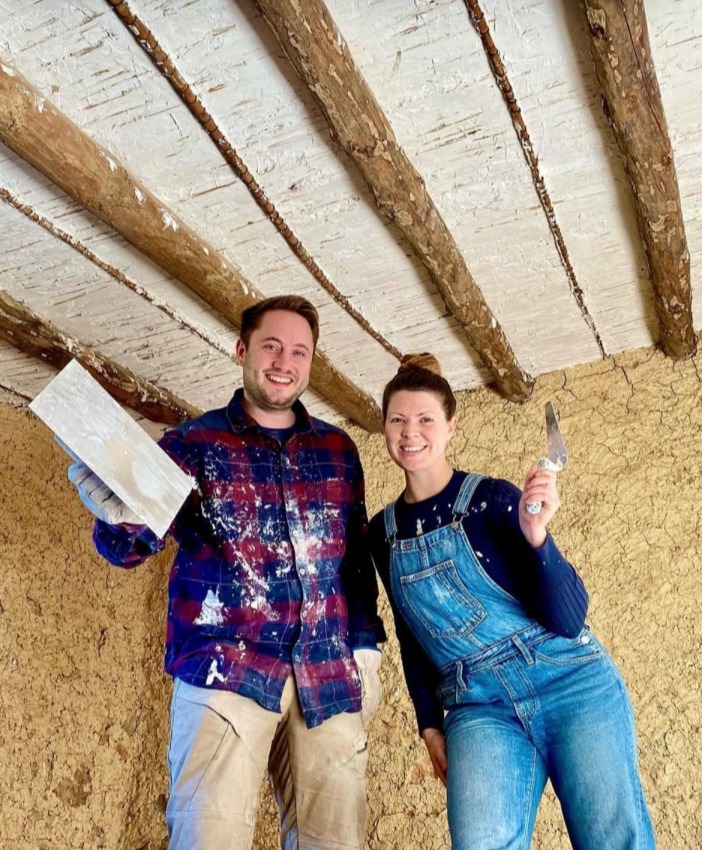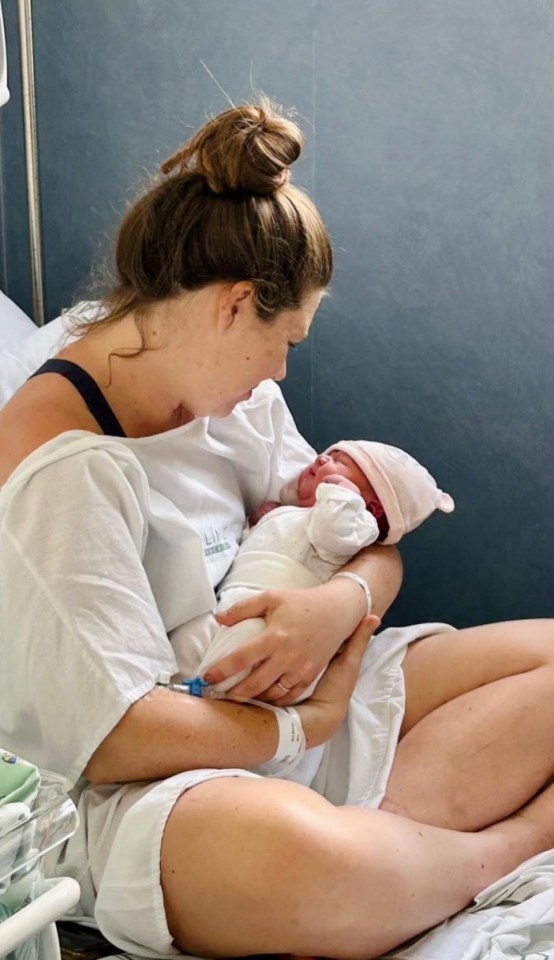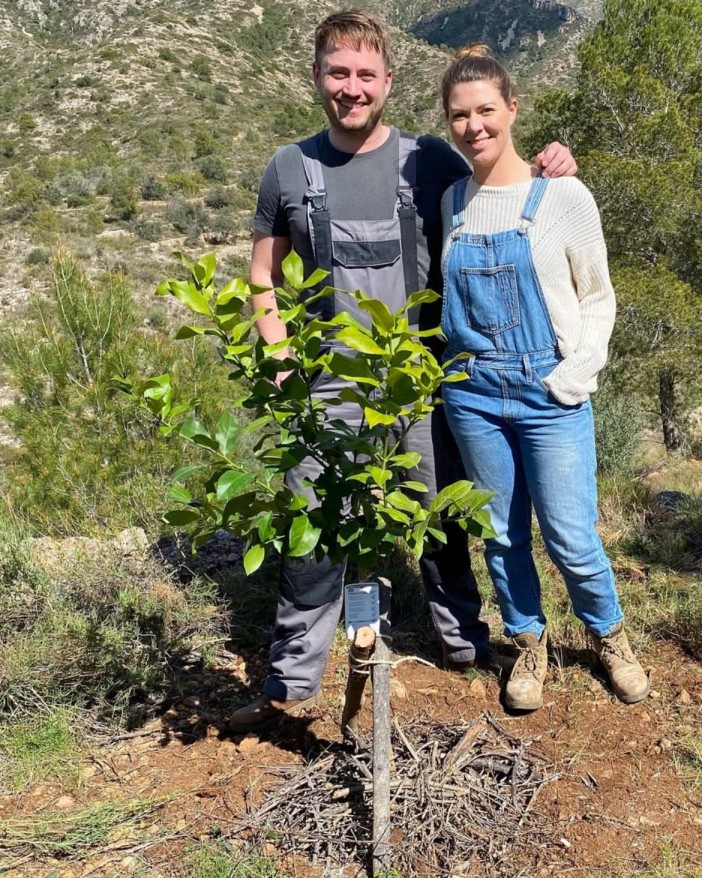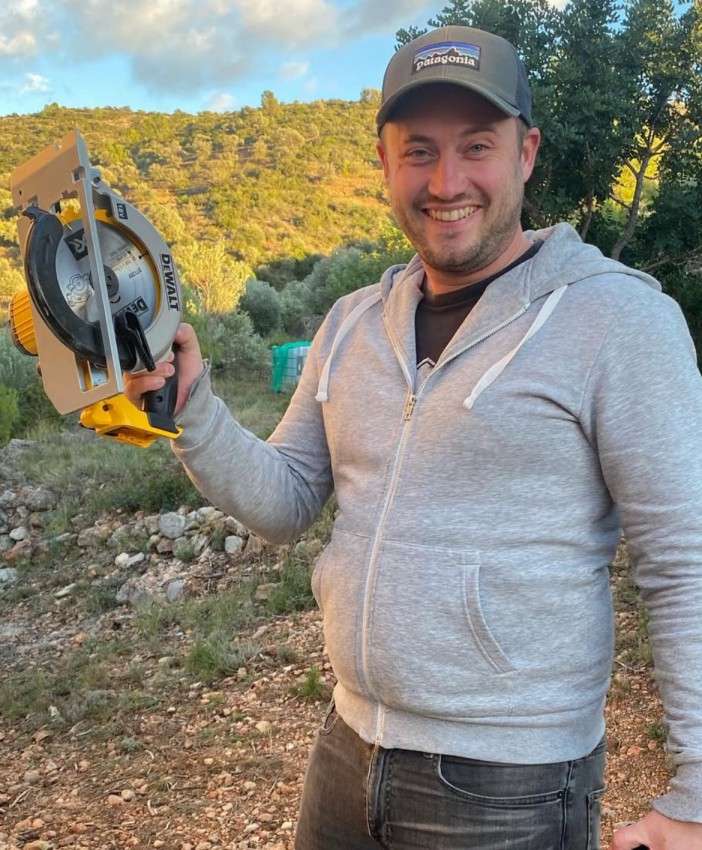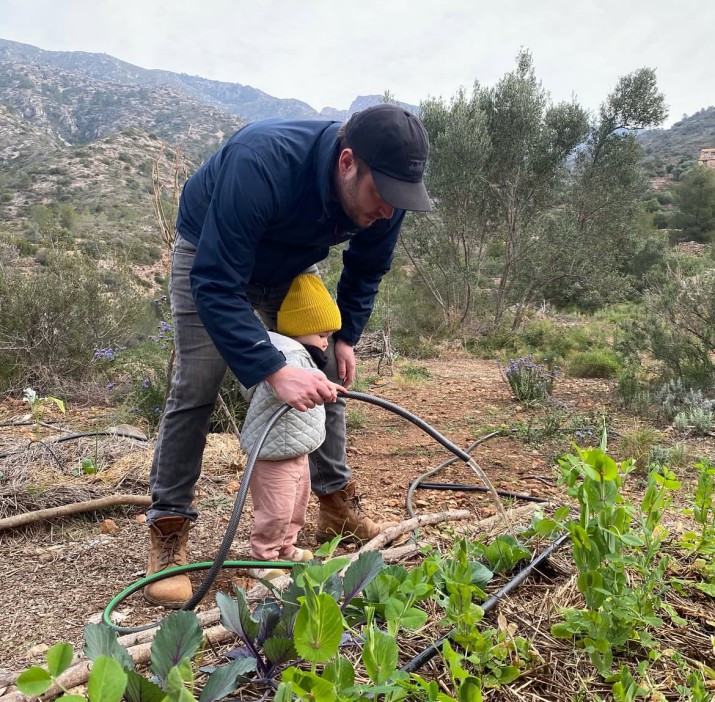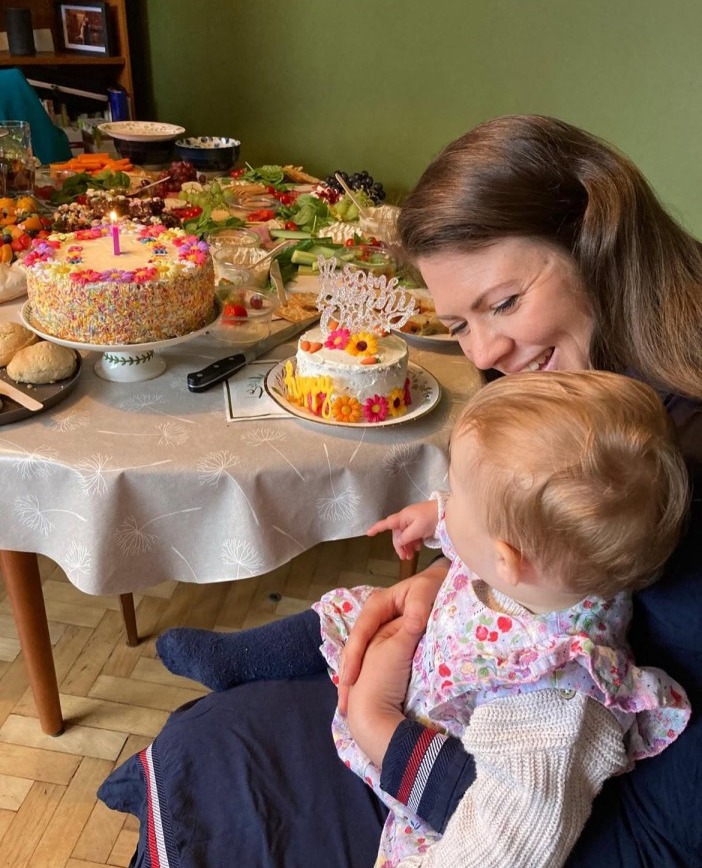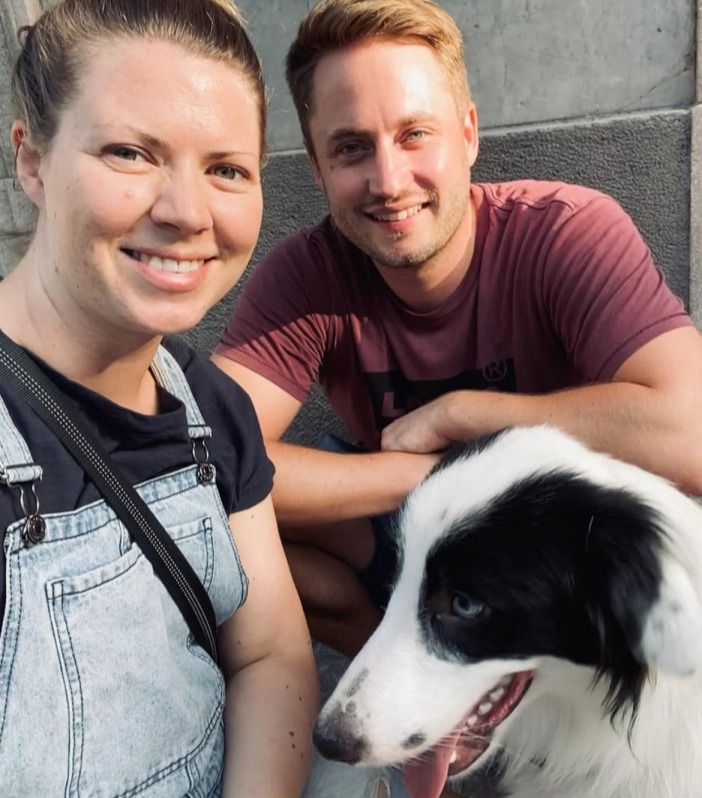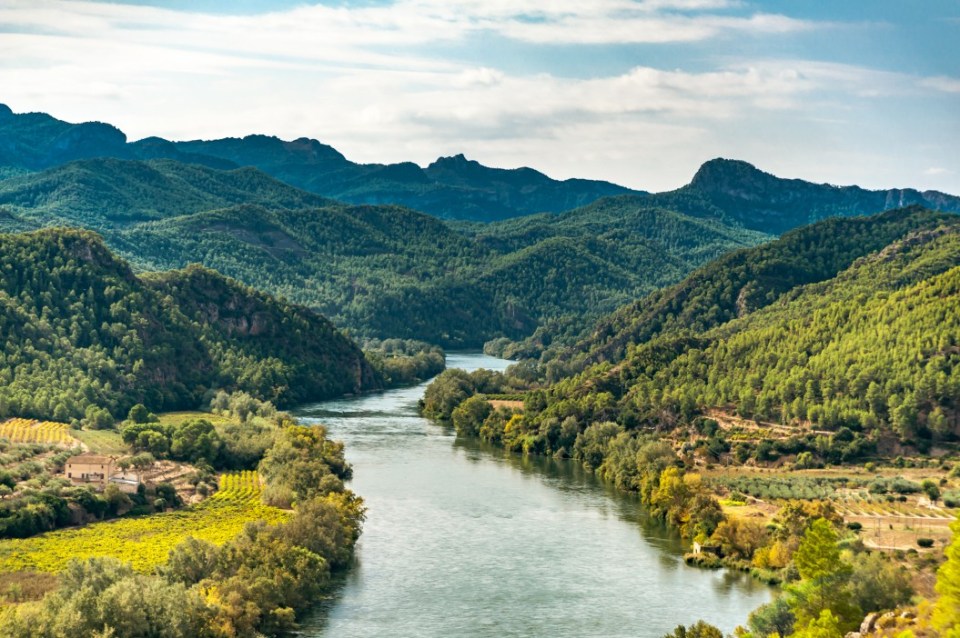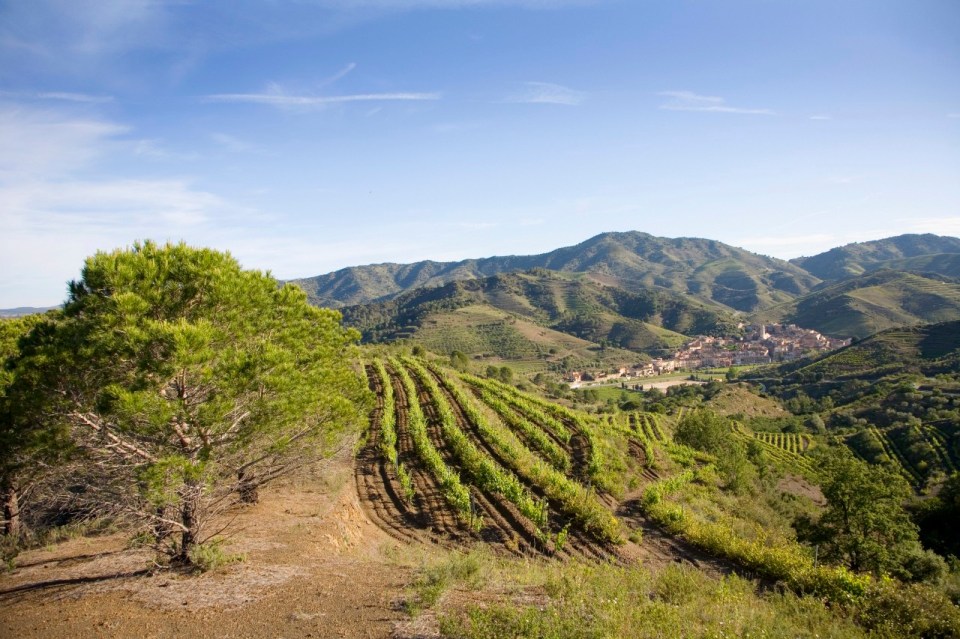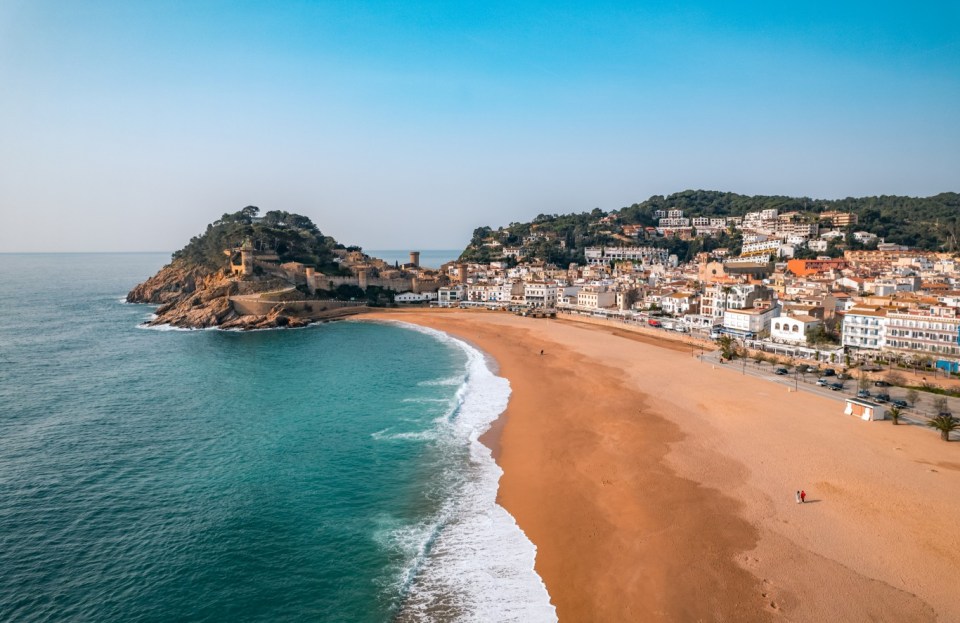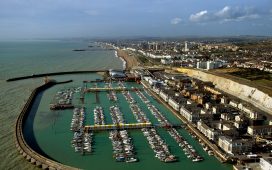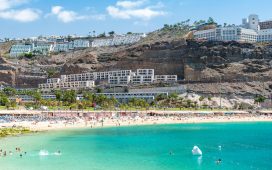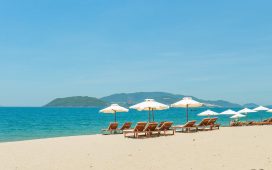LOOKING up from her computer, Katie Smith hears the buzzing of bees, chirping birds and her giggling toddler picking vegetables with her dad.
Five years ago the 36-year-old mum-of-one and husband Danny, 37, ditched their office jobs in the UK and used cash they’d saved for their wedding to buy a dilapidated two-room stone house and 12.5 acres of land in a popular holiday hotspot.
Their farm, complete with 200 olive trees and 50 carob trees, some dating back 300 years, sits in the terraced hills of Catalonia, Spain and cost the couple a little over £15,000 – less than the price of a second-hand Ford Kia.
The couple chose to avoid the more touristy areas in the Mediterranean region, opting for a tiny rural village outside Baix Ebre with just 900 residents, where cappuccinos cost £1.20 – 10p more than a pint of beer.
The cost of living in rural Catalonia is 50 per cent cheaper than Britain, while rent is 70 per cent cheaper and buying a home or farm is a whopping 90 per cent less than in London.
Former marketing manager Katie and project manager Danny, 37, met at school in Rotherham, South Yorks when they were 17 and have been together ever since.
The pair attended the University of Reading and stayed after graduating, settling into jobs on the outskirts of London and commuting from their £900-a-month rented one-bedroom flat.
Katie explains: “In 2015 we were trying to save for a house in the commuter belt and Danny’s work offered him the chance to do advanced study in Polymer Chemistry at the University Automna in Barcelona.”
The pair moved to Barcelona and Katie got a job in marketing.
When lockdown hit in 2020 the pair ditched their plans for a big wedding and exchanged their vows in front of ten people.
They then used the money they’d saved for the nuptials to pursue a new life as olive producers, despite having never lived or worked on a farm.
“Lockdown and the cost of living made us realise if we wanted to try something different – this was our chance,” says Danny.
In July 2020 they paid just over £15,000 for their olive grove plot featuring a two-room stone building, known as an ‘Almacén’, which didn’t have water or electricity.
Speaking to The Sun, Katie reveals: “It’s three miles down a dirt track. It hadn’t been used for decades.
“The olive trees were in dire need of love and the bottom room of the house had been used to house a donkey, but we loved it.
“We still can’t believe we bought an olive farm for less than the price of a second hand car.
“This year we’re going to press our own extra virgin olive oil. We didn’t grow up on a farm so we’re self-taught.
We still can’t believe we bought an olive farm for less than the price of a second hand car
Katie Smith
“The owner wanted cash and when we had to hand over £15,000 in notes. It was terrifying but it all worked out brilliantly.”
Danny and Katie, who were still working in Barcelona and travelled down on weekends, pitched a tent and built a tiny house to stay in while doing renovations on the Almacen.
“It was a big job,” Katie admits. “We were cutting down bushes, fixing the stone walls and tending to centuries-old olive trees to bring them back to life after years of neglect.”
In November 2022 the couple discovered Katie was pregnant.
Katie recalls: “Our olive farm is on terraced land on the side of a mountain with wild boar, no electric or running water.
“We realised raising a baby there without a completed house was going to be impossible.”
They spent the next few months looking at houses in the nearby village, and when Katie was 40 weeks they became proud owners of a four-storey, three-bedroom stone and brick terraced home, also in dire need of renovation – costing a little over £50,000.
“We got the smallest mortgage the bank would allow us to have. The house was liveable, and it had running water and electricity. From day one were were renovating,” says Danny.
Katie was made redundant during her pregnancy and the pair admit buying the house, working on the olive farm and welcoming their first child was a monumental task.
Having our daughter in July 2023 made us realise our decision was the right one
Katie Smith
“I am sure people thought we’d come fleeing back to Britain, but we doubled down,” she says. “We’d spent less than the cost of a bedsit in London on an olive grove and a village house.
“Having our daughter in July 2023 made us realise our decision was the right one.
“Having a child is life-changing. We decided to effectively add in becoming farmers and house renovators as well. There are times I looked at Danny and said, ‘This is beyond crazy!’”
The couple knew if they returned to Britain they’d have to move to the commuter belt outside of London and would be overwhelmed with financial worries and work stress.
“Just the experience of buying the ‘off the grid olive grove’ made us realise Spain was our new forever home,” says Danny.
“When we bought the village house we had no proper DIY experience, but we knew we could make it work even if Isabelle, who’s now 22 months, was just born.”
Despite the village being “about as remote as you can get”, with English a third language behind Catalan and Spanish, the couple say it’s worth it for how cheaply they can live.
The family pays £80 a year for propane for their stove, £100 a month on electricity and £30 for satellite internet.
The couple splashed out £15,000 on a second-hand Land Rover because the off-grid olive grove is almost four kilometres down a windy dirt road, and fuel costs around £1.29 a litre.
They pay just £200 a month for Isabelle to attend the local nursery, and at 22 months she speaks Spanish, Catalan, and English.
“Here we spend less than £950 a month on mortgage, utilities, fuel and food,” says Katie.
Katie continued: “We occasionally do a trip to a nearby city to go to Lidl or Aldi.
“We buy food we need from the local village markets and spend £60 a week. On average milk costs 80p a litre, bread is 90p a loaf and a dozen eggs £1.60.
Here we spend less than £950 a month on mortgage, utilities, fuel and food
Katie Smith
“A bottle of locally produced wine is around £3 and a pint of local beer is around £1.10.
“Eating out at a local village restaurant is about £18 for two and includes drinks.
“The locals have taken us under their wing. They love the fact a young British couple has moved in and have a child and are living here.”
While some people think they’re “crazy”, Katie says they always knew this way of living was the right decision for them.
“In Britain, a three-bedroom house with 12.5 acres of land would cost between £800,000 and £2million. In London, £65,000 wouldn’t even rate as a house deposit. Here it got us an olive grove and a four-storey home in the village,” she says.
“It’s definitely been a challenge with ups and downs. But when I look up from my laptop and see my little girl and her dad picking vegetables, or we wander in our own olive grove, I really pinch myself.
“Our view is amazing and it’s so quiet. One day we thought we could hear a drone overhead – it was a swarm of wild bees.”
The couple admit taking on renovating their village house and farming the olive grove has been exhausting and not for the faint-hearted.
So far they’ve refurbished the bathroom, plastered the bedroom walls, repaired beams and restored flooring, doing much of the work themselves.
“We set ourselves a budget of £2,400 for the kitchen as it’s the centre of the house,” says Danny.
“We were quoted £10,000 to have the kitchen renovated by builders. Doing it ourselves over 10 months has saved us more than £8,000 and despite exhaustion, leaking pipes, redoing work we thought we’d fixed, it’s almost done.
“We’re creating a proper DIY Catalan farmhouse kitchen. It means finding and using local wood and tiles. That means lots of upcycling.”
As well as the olive and carob trees, Danny is planting lemons, oranges and nut trees.
“We’re all in and refuse to give up,” say Katie. “We’re learning new skills every day. Sometimes we fail, but if we fell apart every time that happened, we’d be back in Britain.”
The Digital Nomad Visa
Spain is also one of 65 countries to now offer digital nomad visas.
The Digital Nomad Visa, also called Spain Telework Visa, allows non-EU remote workers and freelancers to legally reside in Spain. It was introduced in the 2023 Startups Law.
Katie says the key to making a successful move to rural Spain is getting the digital nomad visa and ensuring you keep to a work routine with your British job.
“It is also critical you check if the property you are buying allows you to live on it,” she adds.
“Just because it’s for sale and has a building on it doesn’t mean living there is approved.
“It’s done on the British equivalent of a council or council basis. So, visit the local Town Hall and check – you don’t want to buy a farm or olive grove and discover you can’t renovate the house.”
Since having her daughter, Katie has published a bilingual English and Spanish children’s book called Paco the Adventure Dog Goes to the River.
“It’s about our dog Paco but allows parents to start teaching their child Spanish,” she explains.
“We are doing free courses to learn Catalan and we’re now almost fluent in Spanish.”
Katie has started chronicling the family’s new life on social media and has found herself inundated with questions from families wanting to do the same.
“Our YouTube is very popular,” she says. “Lots of young families want advice. If we did it with a newborn, so could they.
“It’s a dream many people have. People wanted to know everything about our new life, from where we get our hair cut to the cost of fuel and how we pay our electric bill.
“Living here is a real back to basics existence, and we love it. The pressure we used to feel in London has disappeared.
“We’re less stressed, more relaxed and have more quality family time than ever before.”

